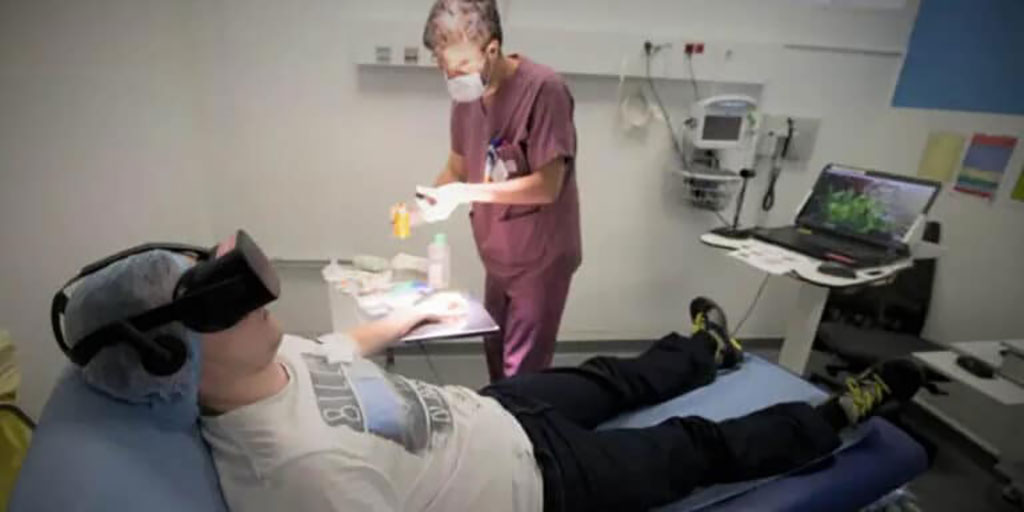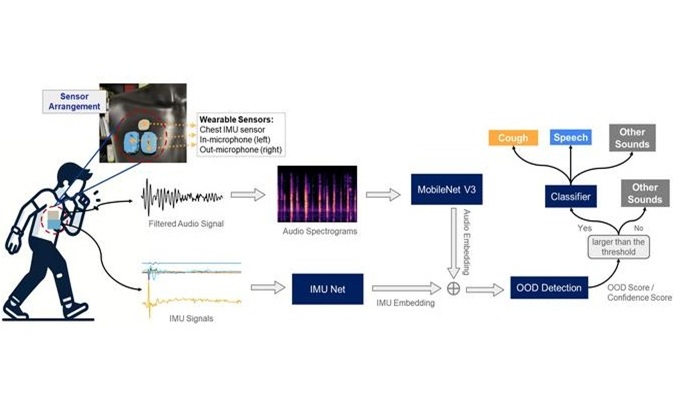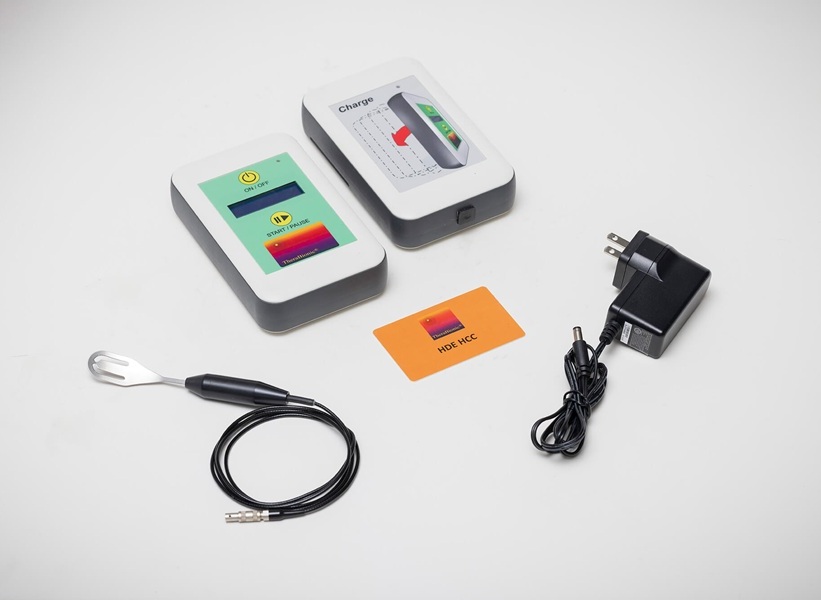VR in the OR May Serve as Effective Adjunct to Anesthesia for Surgical Procedures
|
By HospiMedica International staff writers Posted on 23 Sep 2022 |

With conditions such as carpal tunnel syndrome and osteoarthritis on the rise, U.S. hand surgeons perform more than half a million procedures each year. Patients undergoing hand surgery commonly receive a regional anesthetic to block pain prior to the procedure, plus monitored anesthesia care (MAC) during the operation. MAC typically consists of an IV-administered sedative – such as propofol – to keep patients feeling sleepy and calm during procedures but awake enough to follow instructions as needed. Too much sedation, however, can lead to low blood pressure, upper airway obstruction and potentially serious complications such as stroke, heart attack or respiratory failure. Now, the results of a randomized controlled trial suggest that virtual reality immersion can minimize the need for sedatives during hand surgery without negatively impacting patient satisfaction.
Physician-scientists at Beth Israel Deaconess Medical Center (BIDMC, Boston, MA, USA) used VR technology software from XRHealth (Brookline, MA, USA) in the clinical trial consisting of 34 patients undergoing hand and wrist surgery. All of the patients were given a peripheral nerve block before surgery. Patients were randomized to intraoperative immersive virtual reality with intravenous anesthesia only given as needed, or to usual care as directed by the anesthesiologist. The VR therapy software provided an immersive, engaging environment that guided patients through relaxation and pain reduction techniques while undergoing the surgery.
The results of the trial showed that the majority of patients (13/17) using the XRHealth VR technology did not need any intravenous sedatives during surgery. A postoperative survey demonstrated similarly low levels of pain and anxiety for patients in both control groups. Other secondary findings demonstrated that patients using the VR technology recovered from anesthesia more quickly and left the recovery room earlier than those in the usual care group. These findings could lead to a discussion in the medical industry about using non-pharmaceutical interventions during surgical procedures that both enhance the patient experience during surgery and provide a better postoperative recovery.
"Anesthesia providers are always trying to balance the primary interests of patient comfort and patient safety. Our results demonstrate that VR may help provide satisfactory control of pain and anxiety for procedures such as upper extremity surgery with regional anesthesia," said senior study author Brian O'Gara, MD MPH, Principal Investigator at Beth Israel Deaconess Medical Center. "This is incredibly valuable in that VR may allow for avoidance of risky sedatives without detracting from the patient experience. If the use of this technique can also aid perioperative efficiency, it has the potential to be a real game-changer for both patients and providers."
"Transporting patients to different treatment rooms in the metaverse while undergoing operations in the real world can provide significant medical breakthroughs in the healthcare industry; managing pain and anxiety in a virtual environment can be a game changer for coping through surgical procedures and will help the patients' body heal faster eliminating the recovery from the anesthesia," added Eran Orr, CEO of XRHealth.
Latest AI News
Channels
Critical Care
view channel
Origami Robots to Deliver Medicine Less Invasively and More Effectively
Delivering medicine to ulcers or other internal sites often requires invasive procedures that can disrupt surrounding tissues and lengthen recovery times. Traditional magnetic actuators used in soft robotics... Read more
Improved Cough-Detection Technology Aids Health Monitoring
Coughing serves as an important biomarker for tracking a variety of conditions and can help monitor the progress of respiratory diseases or predict when someone’s asthma is being exacerbated.... Read morePatient Care
view channel
Revolutionary Automatic IV-Line Flushing Device to Enhance Infusion Care
More than 80% of in-hospital patients receive intravenous (IV) therapy. Every dose of IV medicine delivered in a small volume (<250 mL) infusion bag should be followed by subsequent flushing to ensure... Read more
VR Training Tool Combats Contamination of Portable Medical Equipment
Healthcare-associated infections (HAIs) impact one in every 31 patients, cause nearly 100,000 deaths each year, and cost USD 28.4 billion in direct medical expenses. Notably, up to 75% of these infections... Read more
Portable Biosensor Platform to Reduce Hospital-Acquired Infections
Approximately 4 million patients in the European Union acquire healthcare-associated infections (HAIs) or nosocomial infections each year, with around 37,000 deaths directly resulting from these infections,... Read moreFirst-Of-Its-Kind Portable Germicidal Light Technology Disinfects High-Touch Clinical Surfaces in Seconds
Reducing healthcare-acquired infections (HAIs) remains a pressing issue within global healthcare systems. In the United States alone, 1.7 million patients contract HAIs annually, leading to approximately... Read moreHealth IT
view channel
Printable Molecule-Selective Nanoparticles Enable Mass Production of Wearable Biosensors
The future of medicine is likely to focus on the personalization of healthcare—understanding exactly what an individual requires and delivering the appropriate combination of nutrients, metabolites, and... Read moreBusiness
view channel
Philips and Masimo Partner to Advance Patient Monitoring Measurement Technologies
Royal Philips (Amsterdam, Netherlands) and Masimo (Irvine, California, USA) have renewed their multi-year strategic collaboration, combining Philips’ expertise in patient monitoring with Masimo’s noninvasive... Read more
B. Braun Acquires Digital Microsurgery Company True Digital Surgery
The high-end microsurgery market in neurosurgery, spine, and ENT is undergoing a significant transformation. Traditional analog microscopes are giving way to digital exoscopes, which provide improved visualization,... Read more
CMEF 2025 to Promote Holistic and High-Quality Development of Medical and Health Industry
The 92nd China International Medical Equipment Fair (CMEF 2025) Autumn Exhibition is scheduled to be held from September 26 to 29 at the China Import and Export Fair Complex (Canton Fair Complex) in Guangzhou.... Read more













